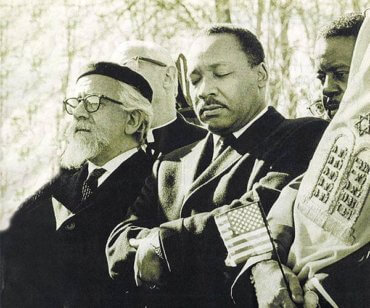
Is There a Problem With Trick-or-Treating According to Judaism?
Dear JITC-
Is there a problem with trick-or-treating according to Judaism? If so, why?
Thanks,
Jamie
Dear Jamie-
Thanks for your question. There are two types of holidays: religious and secular. Despite the commercialization decried by those who observe it, I think that most people would have no trouble recognizing Christmas as a religious holiday. (The fact that banks are closed on December 25 in observance of the day doesn’t magically “secularize” it.) Therefore, Jews may not observe even a “secular” Christmas because of Leviticus 18:3, in which the Torah prohibits us from copying other nations’ ways. This is called “b’chukoseihem.”
The Rema (YD 178:1) defines the prohibition of copying other nations’ ways as doing things that have no inherent logical reason for doing them other than their idolatrous roots. There’s no logical reason for one to install and decorate an evergreen tree in one’s living room for a particular period each winter. For a Jew to do that would be a clear violation of b’chukoseihem. The same would be true of Saint Patrick’s Day, Valentine’s Day and Mardi Gras, all of which have nonsensical practices with inextricable roots in other religions’ observances.
On the other hand, we have discussed elsewhere how Thanksgiving isn’t a religious holiday. It may have been instituted by the Pilgrims, but Thanksgiving is observed by people of all faiths and is considered a religious obligation by none. Accordingly, most halachic authorities permit its observance. (Some do consider feeling required to eat turkey on a particular Thursday in November to be a nonsensical practice and advocate occasionally changing up the menu to avoid the appearance of it being an obligation but such is not the dominant position.)
So what’s Halloween? Is it a secular holiday like Thanksgiving or a religious holiday like Christmas? The answer lies less in its observance than in its origin.
Two millennia ago, the Celts observed their new year on November 1, which for them marked the onset of winter. October 31 was called Samhain (pronounced sowen) meaning “summer’s end,” after the god of the same name. The Celts believed that the barrier between the worlds of the living and the dead became blurred on this night, enabling the spirits of the dead to roam the earth.
The Romans conquered the Celts by 43 CE. They ruled for 400 years and combined two of their own holidays with Samhain. One was Feralia, a holiday commemorating the dead, and the other was a holiday honoring Pomona, goddess of fruit and trees.
By the ninth century, Christianity had spread into the Celtic lands. The Church, having trouble getting people to stop celebrating the pagan holidays, assigned Christian holidays to coincide with them. November 1 was designated “All Saints Day,” honoring martyrs and saints. October 31 was the eve of All Saints Day, “All Hallows Eve,” from which the name Halloween is derived. In England, the poor would beg for “soul cakes” on this day, which they received in exchange for promises to pray for the donor’s deceased relatives. This is the origin of the practice to “Trick or Treat.” Dressing in costume comes from a Celtic tradition of dressing up in animal skins and from a European custom to wear masks in order to disguise oneself from wandering spirits.
Halloween, as a synthesis of Celtic, Roman and Christian celebrations, is clearly a holiday of religious origin despite the secular ways in which many may celebrate it today. Accordingly, trick-or-treating and other ways of commemorating the day, such as costume parties and bobbing for apples, are prohibited as “other nation’s ways.” (What’s wrong with bobbing for apples, you ask? The apple was the symbol of the aforementioned goddess Pomona, which is why bobbing for apples is specifically a Halloween activity.)
Perhaps surprisingly, while going out and soliciting candy is prohibited, distributing candy to those who knock on your door is actually permitted. This is because of a principle called “mipnei darchei shalom,” i.e., in order to promote peaceful relations.
The mishna in Gittin (5:8) lists a number of things that were enacted in order to promote peace. Some of these are specific to Jews, such as that a kohein reads the Torah first, followed by a Levi and then a Yisroel. The mishna concludes, however, with one that is specific to the way we interact with non-Jews: one must not prevent a non-Jew from gathering gleanings and the other portions of a crop that are left for the needy. While these agricultural mitzvos apply solely to Jews, it wouldn’t be very neighborly if a farmer only allowed poor Jews to gather these portions. Accordingly, the Sages enjoined us to allow any needy person to help himself, regardless of his religious affiliation.
For this reason, the Talmud tells us (Gittin 61a) that we sustain needy non-Jews just like we do needy Jews, we visit sick non-Jews just like we do sick Jews, and we bury deceased non-Jews just like we do deceased Jews. All this is done in order to promote peaceful relations between Jews and non-Jews. Arguably, this extends to handing candy to costumed children who may knock on your door on October 31. Consider: if we don’t give candy to neighborhood children, their takeaway would likely be that Jews are stingy or grinches. (I know that the Grinch is a Christmas character but you get the point.) These kids would likely grow up with a bad impression of Jews, which certainly wouldn’t promote peaceful relations.
This isn’t just me saying so. It’s well documented that certain Torah authorities, including Rav Yaakov Kamenetsky and Rav Avrohom Pam, prepared and distributed goodies to neighborhood children who knocked on their doors.
So celebrating Halloween by trick-or-treating or in other ways? That’s prohibited for Jews as a practice derived from non-Jewish religious roots. Giving candy to trick-or-treaters? That’s permitted in order to foster positive relations with our non-Jewish neighbors. (If you’re really eager to put on a costume and move treats from one house to another, Purim’s in March. Hopefully, life will be more back to normal by then.)
Sincerely,
Rabbi Jack Abramowitz
Educational Correspondent
Follow Ask Rabbi Jack on YouTube
If you found this content meaningful and want to help further our mission through our Keter, Makom, and Tikun branches, please consider becoming a Change Maker today.







